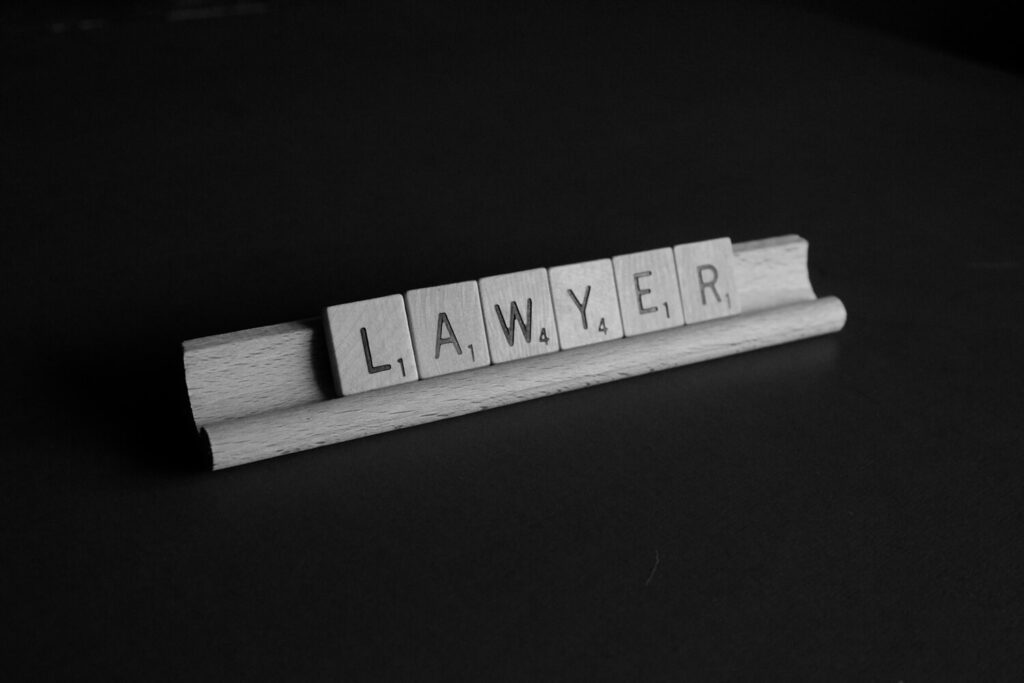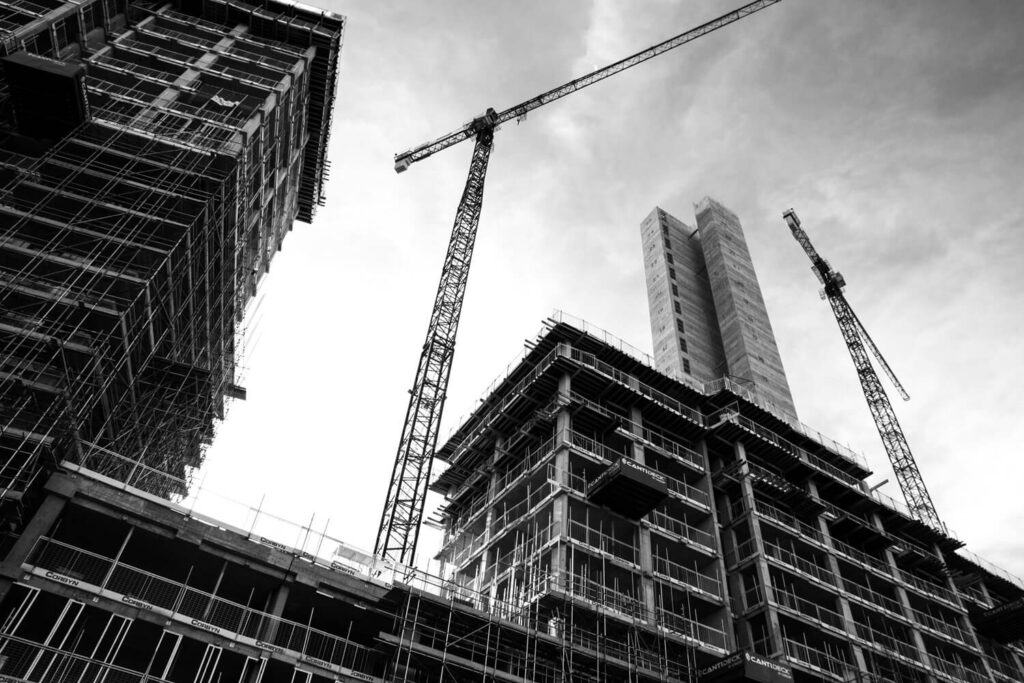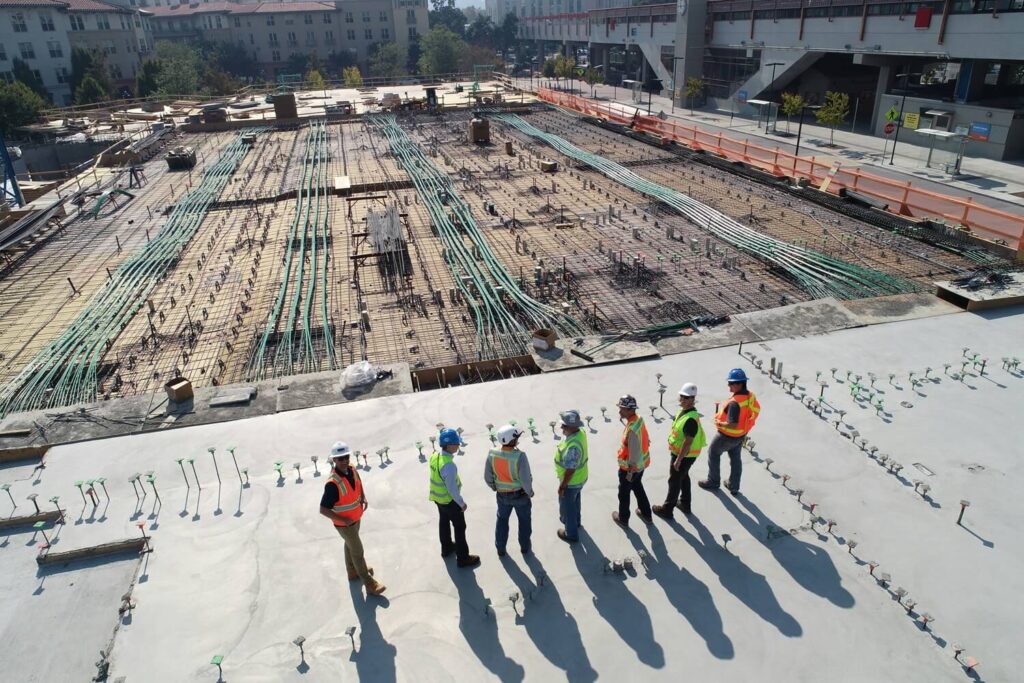The Adjudication Process in the UK?
When construction disputes arise, projects slow down, and costs begin to multiply. These delays can transform manageable disputes into financial disasters. The adjudication process in the UK is designed to secure fast and fair outcomes. In most cases a resolution is reached within 28 days, keeping work moving and payments flowing.
Learn about adjudication and how the process works with our comprehensive guide. If you are facing a construction dispute, contact our experienced team of solicitors and barristers today. Our legal experts can help you achieve swift resolutions and keep your construction project on track.
What is the Adjudication Process in the UK?
In the UK, adjudication is a statutory dispute resolution process that is governed by the Housing Grants, Construction and Regeneration Act 1996. This was amended by the Local Democracy, Economic Development and Construction Act 2009. Collectively they are known as the Construction Act. This legislation establishes mandatory procedures for resolving disputes for both parties.
To reach a fast resolution, adjudication follows a strict timeline that must be adhered to from the point of starting the process through to the adjudicator’s decision. This decision is final and legally binding. However, it can be challenged through litigation or arbitration at a later stage.
Adjudication is focused on keeping business operations moving. While decisions may be temporary, they allow work to progress uninterrupted while parties retain the right to pursue final settlement later. Adjudication can be applied across different industries, but it is most often used in construction.


What is Adjudication in Construction?
Multiple parties, tight deadlines, and complex contracts make the construction industry particularly prone to disputes that can paralyse progress. Disputes can arise that involve payment claims, contractual issues, time extension issues, or defective work.
It is important to note that the right to adjudication is available to all parties whether a large-scale employer or small subcontractor. Construction contracts cannot waive the right to adjudication.
The Adjudication Process: Key Steps
Step 1: Notice of Adjudication
To formally initiate proceedings, the referring party must serve a written Notice of Adjudication. This Notice includes what the dispute involves, who is affected, when and where it occurred and what resolution is requested. This Notice establishes the boundaries of the case.
Step 2: Adjudicator Appointment
An adjudicator must be appointed within 7 days of the Notice of Adjudication being served. If all parties can agree on an individual, the adjudicator can be appointed quickly. If not, the referring party can apply to an Adjudicator Nominating Body (ANB) to have an adjudicator nominated. This will happen within five days of a request being submitted and associated fees being paid.
Step 3: Referral Notice
Also, within 7 days of the Notice of Adjudication, the referring party must serve a Referral Notice. This is where the case can be laid out in detail. Supporting documents including witness statements and expert reports can be included with this Referral Notice. The submission of this notice starts the clock on the 28-day period for the adjudicator to return their decision.
Step 4: Response
Defending parties will usually be required by the adjudicator to serve a response to the Referral Notice. This allows them to set out their argument in the case. The Construction Act does not specify that a defending party must submit a response, however it is most often requested they do so by the adjudicator to enable them to assess the case fully. If the defending party requires it, the adjudicator may increase their response time to 14 days from the submission date of the Referral Notice.
Step 5: Adjudicator Decision
Within 28 days of receiving the Referral Notice, the adjudicator must issue their final decision. If all parties agree, this deadline may be extended. This can happen if the adjudicator requests further information from the parties involved or they may wish to conduct a site visit to help them decide on the case.

How Long Does Adjudication Usually Take?
Key deadlines from the Notice of Adjudication date are:
- 7 days to appoint the adjudicator
- 7 days to serve the Referral Notice
- 28 days for the adjudicator’s decision
Adjudication represents a fast-track mechanism to resolve construction disputes. Litigation can often take over 12 months and traditional arbitration three months or more. The focus of adjudication remains on maintaining project momentum with further legal proceedings being available to all parties at a later more convenient date.
Who pays for adjudication?
On 1 October 2011, the Local Democracy, Economic Development and Construction Act 2009 came into effect. This act clarified cost allocation rules for adjudication. No contractual provisions can be made between parties before an Adjudicator has been appointed. Cost allocations must be fair and not shift costs onto one party or another.
Adjudicator Costs:
Both parties are jointly responsible for the adjudicator fees. The adjudicator will set forth their fees based on their time spent, expenses and work carried out. The hourly rates for adjudicators can range between £200 – £300 plus VAT.
Party Costs:
Each party are responsible for their own legal and professional fees. In adjudication the losing party is not liable for all costs as is often the case in litigation.
Administrative Costs:
If an Adjudicator Nominating Body has been used to select an adjudicator, a fee ranging between £300 – £425 will also be payable.
Adjudicator decisions are legally binding and enforceable through court proceedings. Compliance is a legal requirement even if the decisions are being challenged through litigation or arbitration.
Understanding the adjudication process in the UK helps construction professionals resolve disputes quickly while keeping projects moving and protecting their business interests.
If your business is facing a dispute, our legal team can help. We can handle the adjudication process with straightforward advice and fixed-fee services. Contact our adjudication lawyers today.
